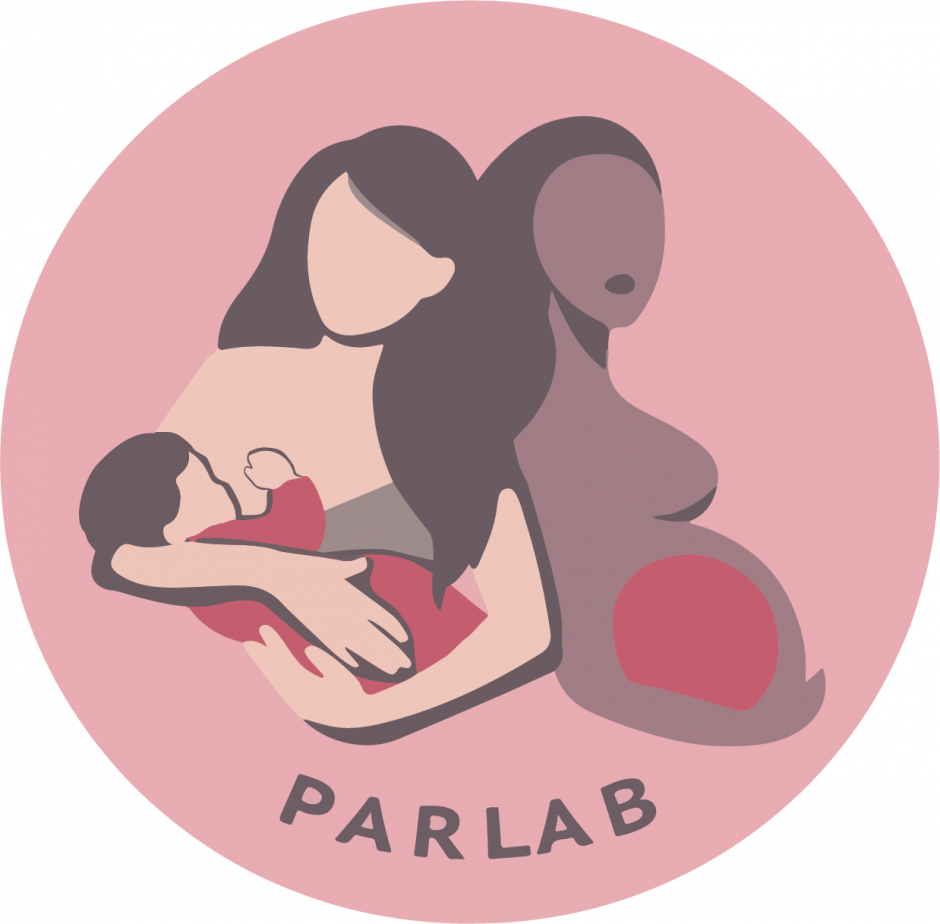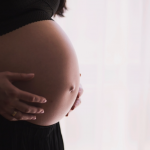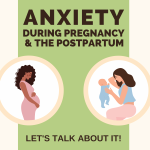PARLab News and Media

Read more about news coverage and updates at the Perinatal Anxiety Research (PAR) Lab.
|
|
Dr. Fairbrother Advocates for Women’s Mental Health at the House of Commons On April 11th 2024, Dr. Fairbrother had the honour of appearing as a witness at the House of Commons’ Standing Committee on Health to advocate for women’s mental health! To hear from her and the other wonderful witnesses, you can access the full recording here. |
|
|
|
Perinatal anxiety disorders screening study: a study protocol Researchers at the PARLab are determining how to effectively screen for perinatal anxiety and related disorders by interviewing pregnant people from across British Columbia. We hope to inform healthcare providers, policymakers, and scientists, about the most effective self-report tools to screen for these disorders. Read more. |
|
|
|
Pregnancy-Specific Anxiety Tool (PSAT): Instrument Development and Psychometric Evaluation Learn more about the newly-developed Pregnancy-Specific Anxiety Tool (PSAT), a promising resource to screen and monitor pregnancy-specific anxiety. Read more. |
|
|
|
Assessment of Canadian perinatal mental health services from the provider perspective: Where can we improve? How can we improve perinatal mental health care? Led by a team of researchers including the PARLab, we conducted a survey of perinatal health providers that revealed gaps in training, screening tool use, and timely and culturally safe treatments for perinatal mental health care in Canada. Read more. |
|
|
|
Infographic on Anxiety in Pregnancy & the Postpartum The PARLab is excited to share our new infographic on Anxiety in Pregnancy & the Postpartum. We developed this resource to aid in the education of pregnant and postpartum people, their partners and families, and maternity care providers about anxiety during the perinatal period (pregnancy & the postpartum). Read more. |
|
|
|
Join our team! The UBC PARLab is looking for candidates to apply for external funding and undertake postdoctoral training with Dr. Nichole Fairbrother, head of the UBC PARLab. The position is an opportunity to receive significant training and experience in conducting perinatal mental health research! Learn how to apply here. |
|
|
|
CBC Radio – Dr. Nichole Fairbrother opens the conversation on unwanted, intrusive postpartum thoughts of harm Listen to Dr. Nichole Fairbrother’s conversation on CBC Radio about unwanted, intrusive postpartum thoughts of harm. She explains how mothers with unwanted, intrusive thoughts of harm are no more likely to hurt their baby when compared to mothers with only accidental thoughts of harm. Dr. Fairbrother touches on why she conducts this research, her experiences with unwanted intrusive thoughts of harm, and an eye-opening demonstration of how unwanted, intrusive thoughts might occur. Listen here. |
|
|
|
Today’s Parent: “I kept imagining I would stab or drown my baby—and I’m not alone” A news article in Today’s Parent features a story of one mother’s experience with unwanted, postpartum intrusive thoughts of harming a baby. Dr. Nichole Fairbrother shares insight that this mother’s experience is not uncommon. She advocates for increased awareness about postpartum intrusive thoughts, reassuring that “mothers who experience intrusive thoughts of intentional infant harm are highly unlikely to actually harm their child.” Read more. |
|
|
|
The Childbirth Fear Questionnaire and the Wijma Delivery Expectancy Questionnaire as Screening Tools for Specific Phobia, Fear of Childbirth Our new study evaluates the accuracy of the Childbirth Fear Questionnaire (CFQ) and the Wijma Delivery Expectations Questionnaire (W-DEQ) of Fear of Childbirth as screening tools for a specific phobia, Fear of Childbirth. Results suggests that the Wijma Delivery Expectations Questionnaire (W-DEQ) performs well as a screening tool for fear of childbirth in pregnant people. The Childbirth Fear Questionnaire (CFQ) performs less well, but nevertheless holds promise! Access the article here. |
|
|
|
In the news: Nearly half of new moms have thoughts about harming their baby — and that’s okay A news article by Big Think features our study on new mothers’ thoughts of harm. Intrusive thoughts of harming newborn children appear to be normal for new parents, especially during times of stress. Read more. |
|
|
|
|
Exploring perinatal health and wellness: Recorded live from the Women’s Health Research Institute Dr. Nichole Fairbrother presents an infographic about postpartum thoughts of infant harm at an event by the Women’s Health Research Institute. To learn more about postpartum research, access the recording here. |
|
|
Screening for Perinatal OCD: A Comparison Between Two Screening Tools Check out our recent publication! Findings from this study provide support for the Dimensional Obsessive-Compulsive Scale (DOCS) as a screening tool for perinatal OCD and indicate a need for disorder-specific screening for perinatal anxiety and their related disorders (AD). Access the article here. |
|
|
|
Thoughts of harming baby a normal but unpleasant part of postpartum experience A news article from the UBC Faculty of Medicine features our study suggesting that thoughts of harming an infant are a normal but unpleasant part of the postpartum experience. Read more. |
|
|
|
Research on the relation between new mothers’ unwanted and intrusive thoughts of harming their infant and harming behaviours We are excited to share our newly published research finding no relation between unwanted, postpartum intrusive thoughts of infant-related harm and harming behaviours. Our findings provide critical and reassuring information, showing that new mothers’ unwanted and intrusive thoughts of harming their infant on purpose do not appear to increase the risk of physical violence towards the infant. Access the article here. |
|
|
|
Screening for Perinatal Anxiety Using the Childbirth Fear Questionnaire We are very excited to share our newly published measure of fear of childbirth: The Childbirth Fear Questionnaire (CFQ). The CFQ is a 40-item, 9-subscale measure with an additional 7-item interference subscale. We hope the CFQ will be useful to researchers and clinicians. Access the article here. |
|
 |
Infographic on Postpartum Harm Thoughts The PAR Lab is excited to share our infographic on Postpartum Harm Thoughts. Over the past six months our team has been working to develop this infographic and to make it as informative, engaging, and thoughtful as possible. Read more. |
|
 |
Perinatal Research at the 9th Canadian National Perinatal Research Meeting 2022 The Canadian National Perinatal Research Meeting is happening virtually from May 30—June 3. This is an exciting opportunity to share and learn more about the growing perinatal research community. Learn more. |
|
 |
CTV News: Postpartum OCD More Common Among New Mothers than Previously Thought: UBC Study Dr. Fairbrother speaks about study on prevalence of OCD-related symptoms in women in their third-trimester. Read more. |
|
 |
The New York Times – Having Disturbing Thoughts as a New Parent? Here’s How to Cope Researchers and health professionals, including Dr. Fairbrother, talk about thoughts of harm among new parents. Read more. |
|
 |
How Non-Monogamy in Montreal Challenges Us to Look Inside Ourselves Dr. Fairbrother was recently interviewed about our study on prevalence rates and relationship satisfaction in open relationships. Read more. |
|
 |
Experts Fear Increase in Postpartum Mood and Anxiety Disorders Experts speak on pandemic-related fears and social isolation experienced by new and expecting mothers. Read more. |
|
 |
Perinatal Anxiety Disorders More Prevalent Than Previously Thought Q&A with Dr. Fairbrother in UBC News about our recently published meta-analysis. Read more. |














